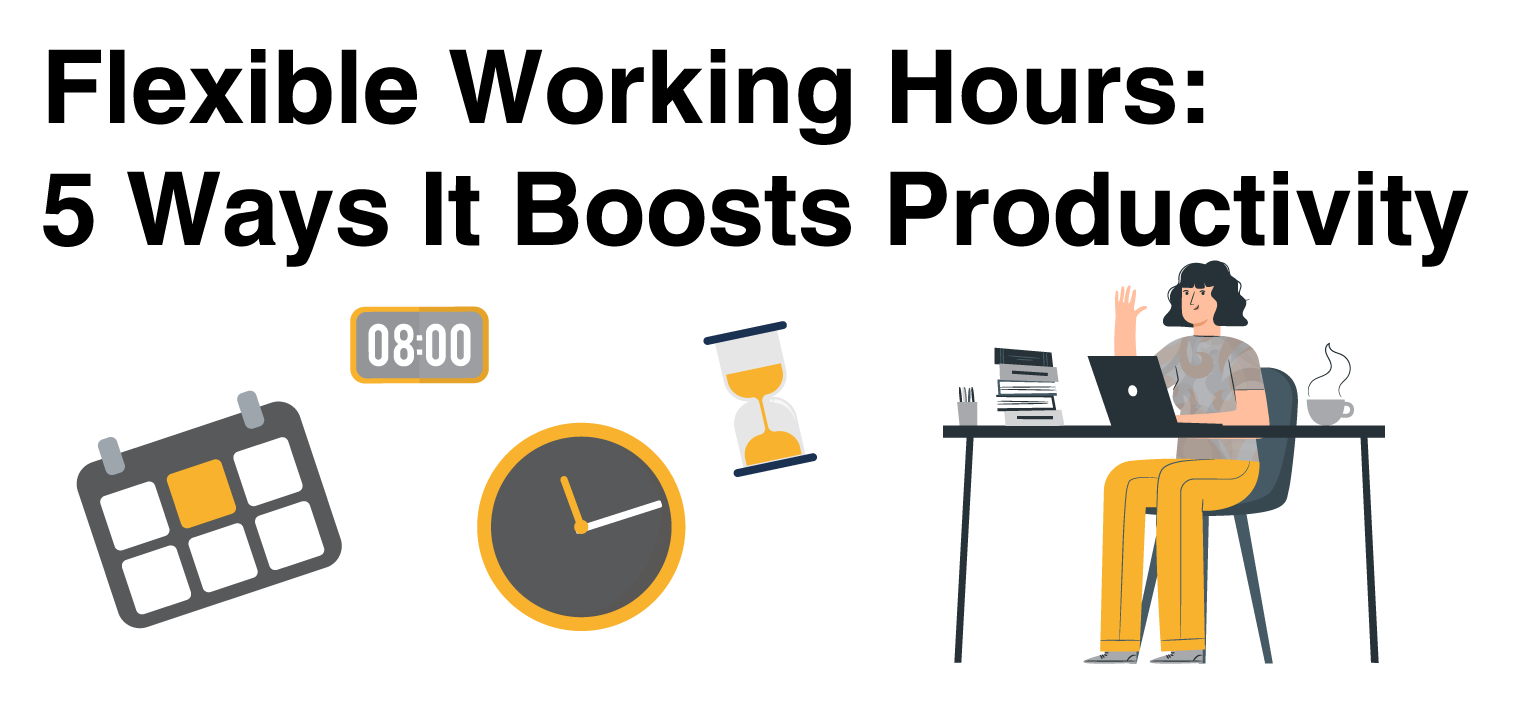Flexible Working Hours: 5 Ways It Boosts Productivity
With the current pandemic still raging on, working as we know it is changing forever. Flexible working hours is the way forward and many organizations are looking forward to integrating flexible working models and/or hybrid teams into their current structures.
Though some might believe that it could be a fad, the numbers tell a different story.
According to a study by Upwork, by 2028, 73% of all departments will have remote workers and 76% of workers would be more willing to stay with their current employer if they could work flexible hours.
Another survey by Buffer shows that 43% of remote employees take three weeks or less of paid vacation in a year. The respondents have identified that a flexible job is helping them to better manage their mental health. They can easily make the time for self-care or exercising to improve physical health and overall well being. Moreover, 95% of respondents reported that remote job flexibility is likely to make them happier.
So what exactly is Flexible Working Hours?
Flexible working hours doesn’t mean letting your staff slack off or go home a couple of hours early from a workday.
A flexible work schedule allows employees to choose and plan their own working hours, working environment, and location - to deliver the best possible output.
This could help them cater to their different needs - like being home to take care of their kids or the elderly, or finding suitable work environments for the differently-abled or simply give them more flexibility over their days to take better care of themselves - physically and emotionally.
According to this study by SHRM, 55% of employees claim flexibility of work-life balance as a very important aspect of their job satisfaction.
Yet many organizations still hesitate to offer flexible working hours even though our case studies show that flexible talent has helped MSMEs and Start-ups.
If you are not convinced yet, read on to understand the many benefits of flexible working.
- Produces Better Results: Expecting people to work efficiently during 9to5 might not work in the organization’s favour. Employees might spend more time looking at the clock than actually being productive.
A flexible work schedule enables employees to work when and where they can be most productive. Employees might prefer working at different hours of the day - while some might work late at night, others might work earlier in the morning. But pushing them to work only during the rigid hours set by the organization might result in poor quality of work produced.
According to the ‘The Impact of Flexible Working Hours on Employees’ Performance’ flexible working hours help employees thrive. Apart from their productivity, their morale is boosted, they are more satisfied with their jobs, which increases efficiency and overall business profitability.
- Reduces Rates of Attrition as it caters to employee satisfaction. Employee attrition leads to huge losses as employee turnover is expensive. Ketan Kapoor, erstwhile CEO, and Co-founder, Mettl, an assessment and skill measurement company, cited a study by Mercer Inc that showed that 45 percent of employers reported turnover costs of $10,000 per lost employee, while 20 percent reported costs closer to $30,000.
Studies show that flexible working models lead to more satisfied employees compared to their regular 9-5 counterparts. Furthermore, flexible working hours ensures a high level of employee engagement and provides ample job satisfaction. This results in employees sticking with their jobs even during difficult times.
- Expands Talent Pool: Flexible work arrangements have a significant influence over hiring practices. Finding the right talent is already a challenge and top talent don’t even want to consider organizations that don’t match their needs. |
One of the main drawbacks that companies fixate on is a regular 9-5 job. Once you get past that perceived notion, you get a choice of a more diverse talent pool. This holds true for the millennial workers (who will make up 50% of the workforce in the next two years) who place a lot of importance to flexibility.
This survey by Deloitte claims that 16.8 percent of millennials choose their jobs based on the opportunity it presents them for achieving work-life balance. The same study claims that 11 percent of millennials look for flexibility as their top priority when deciding where they want to work.
Flexible working also removes the geographical constraints and allows organizations to access those who are not available as part of the traditional pool (like young mothers) and hire the best talent in the market; which means they have a far greater chance of finding someone with the exact skills, experience, and personality to fit best within their organization.
A survey conducted by themomproject.com reveals that 86% of working mothers will leave a job for an opportunity that better supports their work and life considerations.
- Saves Costs for Businesses: Save costs of physical real estate, maintenance, and overheads. You also save on power bills, office supplies, and niceties like break-room coffee and snacks.
According to Global Workplace Analytics, employers can actually save over $11,000 per half-time telecommuter per year.
- Improves Mental Health: Fixed rigid hours are debatable as they seem to affect the overall well-being of employees. These environments seem to induce high levels of stress and eventually, the employees’ mental health takes a hit.
A survey by Kenexa High Performance Institute revealed that 68 percent of people with inflexible schedules report ‘unreasonable’ levels of work stress compared to only 20 percent of their counterparts with flexible schedules.
This leads us to the conclusion that strict or non-flexible work hours are bad not just for employees but businesses as well. Employees with flexible work hours tend to be happier, more productive, and experience lower levels of stress.
Introducing the idea of flexible work need not affect your productivity and allowing your employees to schedule their own work hours and choose their work locations need not mean they will grow tardy or unaccountable.
In fact, the numbers promise that the opposite might be true.
By making some small changes and integrating some level of flexibility, you could benefit on all fronts - increase productivity, retain the best talent, and boost business profitability.
If you are still hesitant, drop us a line to discuss how we can help you integrate flexible working models into your business.


